Marine Learning Systems
Marine Learning Systems News
Training Tips for Ship #13: How's Your Training? You Can't Know Unless You Ask!

We have all heard it a thousand times: “If you do not measure it, you cannot manage it”. This is especially true with training because the inputs (the training provided) are often far removed in time and apparent direct causality from the key output (performance). Therefore, it is important that we measure everywhere we can. One universal form of measurement is the requirement for exams at the end of the course.
Training Tips for Ships #12: Training in COVID-19 Times - A “How to Guide”

COVID-19 is requiring all operators to reconsider how they train. In-person traditional training is essentially prohibited by this pandemic. So how do operators adapt quickly to maintain compliance and train for safe operations, yet do so in a COVID-safe way? Fortunately, it can be done, and it is not difficult. Furthermore, by taking the steps necessary to deliver training during the pandemic, you will be putting in place systems…
COVID-19: Your LMS Can Help You Now More Than Ever
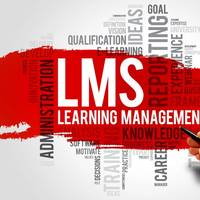
It is clear that we are living in unprecedented times. Equally clear is that we will get through this pandemic, but that it is going to take some strength, stamina and especially some innovation to come through as unscathed as possible. It is the innovation part that I wish to address here with some tips that go beyond training; tips I am observing our customers innovate and implement. Tips that help us solve some of the problems created by the impacts of this pandemic.
Training Tips for Ships: Tip #10 - Don’t Handcuff Your Trainees

Do any of your e-learning modules force learners to spend a certain amount of time on a page before advancing to the next one? Do they force readers to answer one or more questions before advancing to the next page? Do they prevent access to the final exam until every learning page has been visited at least once? Do they enforce a prerequisite structure that prevents access to more advanced learning…
Profiles in Training: Staten Island Ferries

When James C. DeSimone, Deputy Commissioner, Ferry Division, New York City Department of Transportation, signed on to run the Staten Island Ferries in 2003, the organization was still in the aftermath of one of the most significant accidents in its history: the ferry Andrew J. Barberi allision of October 2003, an accident which included a number of fatalities and serious injuries. DeSimone, who had long-tenures in both the commercial and public end of the marine business…
Training Tips for Ship: #8 - The Lecture is Dead
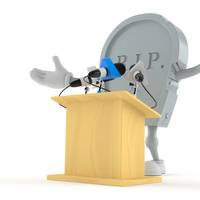
Tip #8: The Lecture is Dead … But Long Live the Classroom!The traditional lecture, for millennia, has been the go-to method for teaching. Yet it is actually a terribly inefficient and ineffective way of teaching. It tends to leave many students feeling confused, bored or generally dissatisfied because it attempts to provide a “one size fits all” solution in an “every learner is different” world. Fortunately, the world is catching on.
Training Tips for Ships: #7 – Stop Lecturing Me!

Does your training still employ traditional “classroom style” lectures where an expert conveys their knowledge to your trainees?If so, your training is an example of a diminishing trend; there is an industry-wide move away from lectures. The 2019 Maritime Training Insights Database (MarTID) report showed that while operators intend to increase their use of almost every type of training surveyed (simulation…
Training Tips for Ships: Taking the Stress out of Tests

We must assess our trainees. Yet we have all heard the complaints they raise about assessments: “I am a bad test-writer”, “this test was much more difficult than I expected”, “I know the material but I did not understand the questions”, “I was nervous, and my mind went blank”, etc.These are not the occasional concerns of weak or lazy trainees – they are the norm. And we must listen because our trainees…
Training Tips for Ships: Taking the Stress out of Tests

We must assess our trainees. Yet we have all heard the complaints they raise about assessments: “I am a bad test-writer”, “this test was much more difficult than I expected”, “I know the material but I did not understand the questions”, “I was nervous, and my mind went blank”, etc. These are not the occasional concerns of weak or lazy trainees – they are the norm. And we must listen because our trainees…
Training Tips for Ships: Tip #5

– The Simple Secret to Making Randomized Exams Fair – In last month’s Training Tips for Ships, we made the important point that we must never give different people the same exam. If we use an exam over and over, our trainees will very quickly learn what questions are on the exam and share the answers with their friends. Suddenly exam scores begin going up, and time spent learning goes down – both for the wrong reasons.
Training Tips for Ships: Never Give the Same Exam Twice

We’ve all heard the stories, and many of us have seen it first-hand: the completely ineffective assessment practice of giving the same multiple-choice exam to people over and over. The only time this is ever acceptable is when all of the people writing the exam are doing so at the same time and are supervised to ensure they are not sharing answers. However, giving the same exam to different people…
How To: Training Tips for Ships

Important training need? A quick video may be the answer!Have you ever witnessed a mariner performing a task poorly or unsafely? Possibly day-to-day confined space entry? A commonly misapplied or misunderstood ColReg? Inattentive watchkeeping? Of course you have. And if you have seen it happen once, you can rest assured that it has happened before, and it will continue to happen unless someone does something about it. So - what can you do?Video may be your answer.
Training Tips for Ships
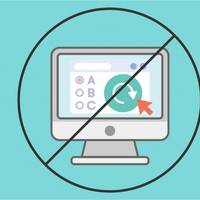
Tip #1. Immediate exam retakes should never be allowed.It is very common practice, especially in eLearning environments, to allow trainees to immediately retake an exam they just failed. Worse, sometimes training is set up to allow the trainee to take the exam repeatedly until they pass.Never do this. It will ensure that your learners are not learning what you want them to learn.For most people, this raises two immediate questions. First, why not allow immediate retakes?
MarTID 2019: Maritime Training Budgets Rise
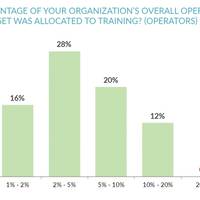
Maritime training budgets continue to trend upwards, compared to the year before: more than 52% of vessel operators reported an increase in training budget, while over 62% of METI reported a larger budget for training. Around 60% of operators and 68% of METIs expect further increases in their training budget for the coming year.These are preliminary findings from the second annual global Maritime Training Insights Database (MarTID) survey.
Mariner Assessment: "There's an App for That"
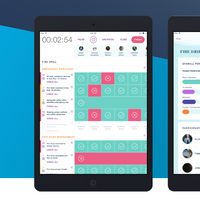
Carnival Corporation partnered with Marine Learning Systems to develop an App for mariner skills assessment.Dubbed SkillGrader, the App was designed to help standardize Carnival Corporation’s training and assessment across the company’s fleet of 105 ships and 9 brands. Prior to its development, there were numerous different approaches to training, with hundreds of programs, and a variety of fleet trainers…
Seagull AS, Marine Learning Systems Partner

Seagull AS and Marine Learning Systems are partnering to provide the full library of Seagull learning content on the MarineLMS training platform. The partnership will provide an integrated solution to the cruise and ferry industries enabling rapid deployment of eLearning programs with course content on land and on-board, with or without connectivity. The system will also provide metrics and analytics which identify training issues before they become performance or safety problems.




